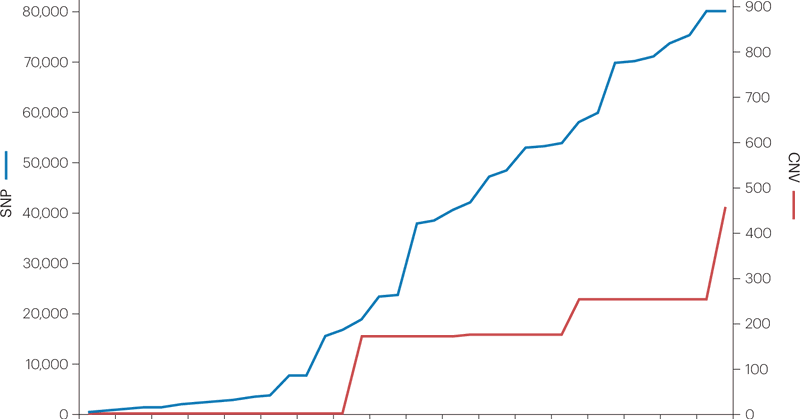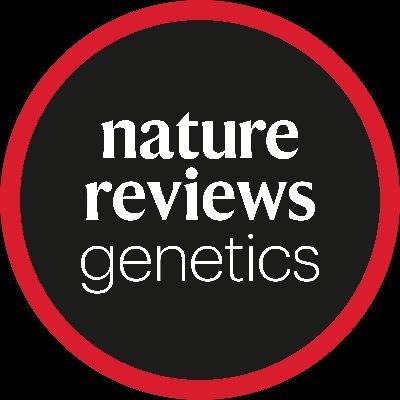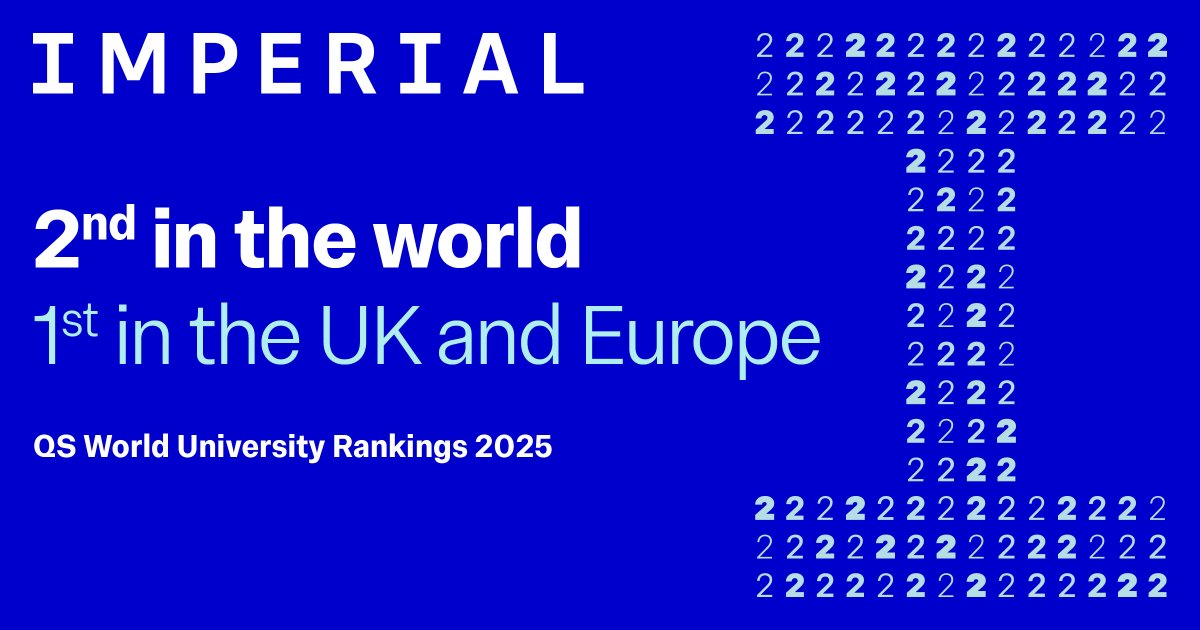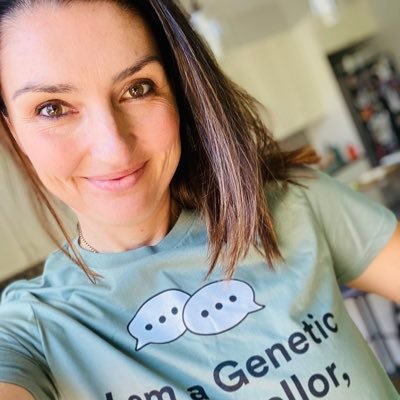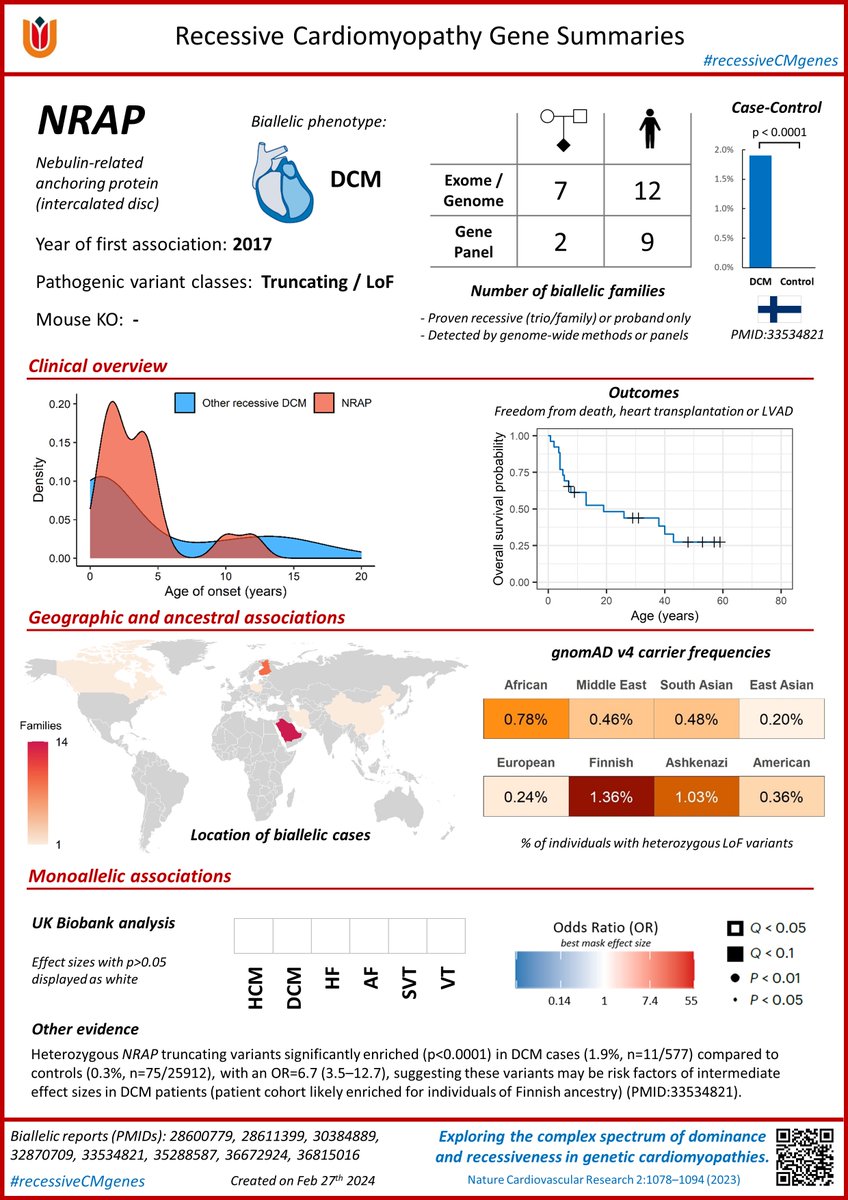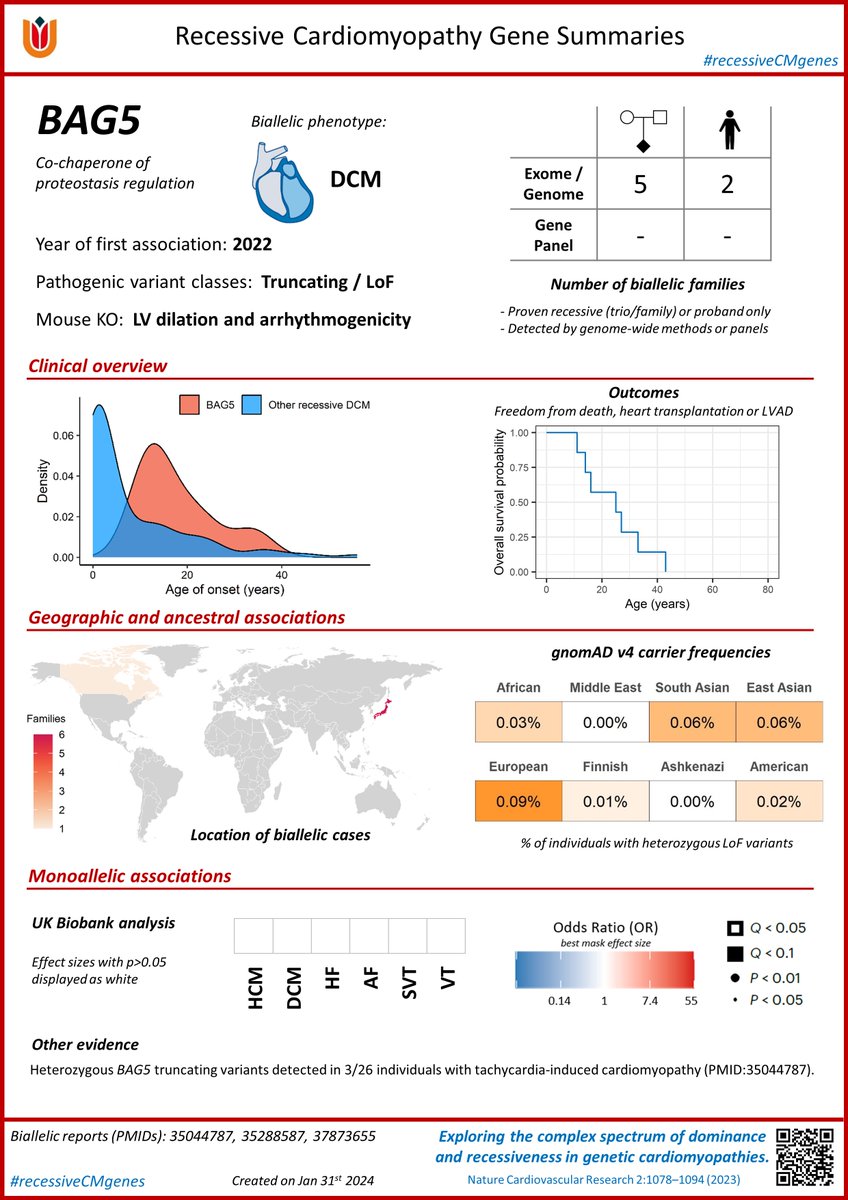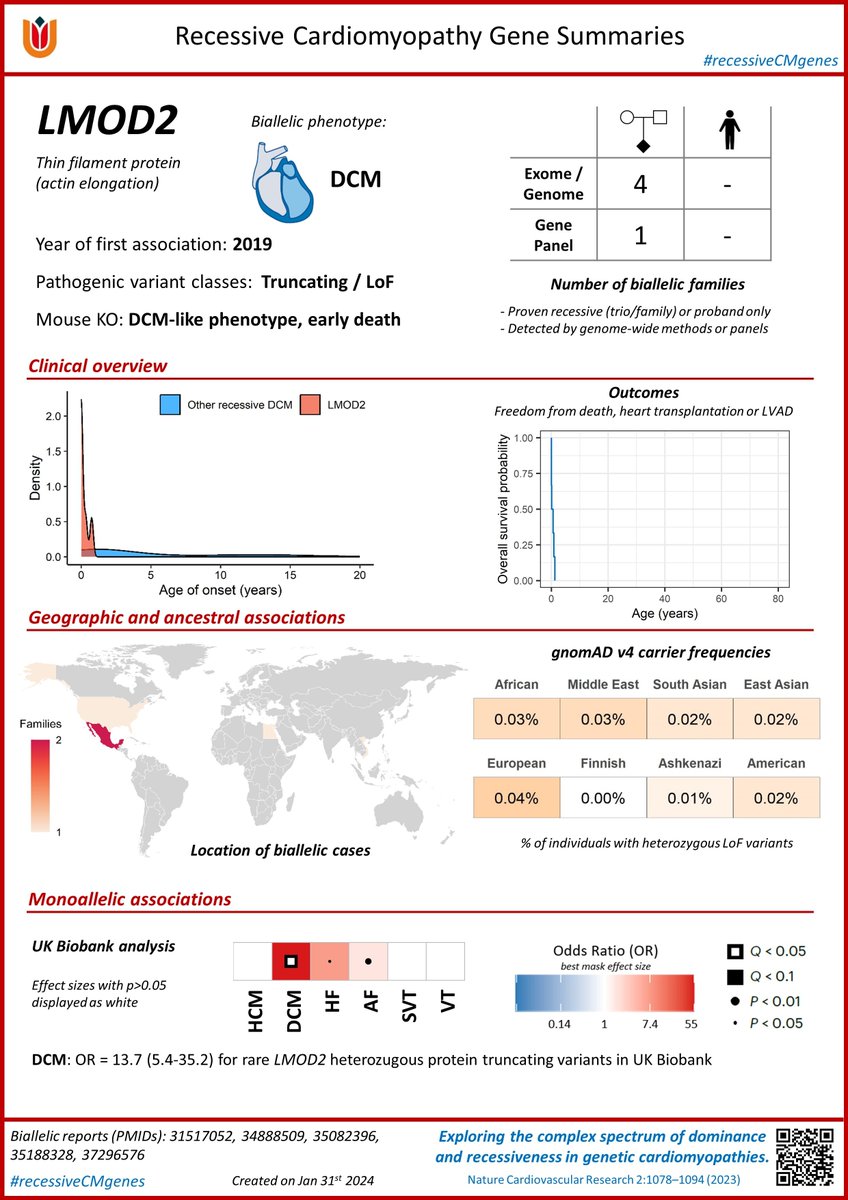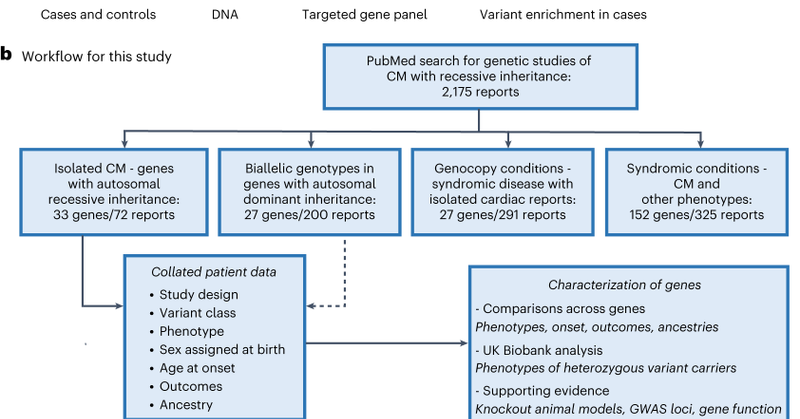
Francesco Mazzarotto
@franz_mazz
Followers
251
Following
375
Media
18
Statuses
149
✺Lecturer in medical genetics @unibs_official ✺Honorary Research Fellow @imperialcollege ✺Bioinformatician at work on cardio 🫀 and psych 🧠 genetics 🧬
Joined June 2018
New useful benchmark to optimize identification of complex variants and/or variants in difficult genomic regions - including centromeric repeats! 💻🧬.
nature.com
Nature Methods - This work introduces a pedigree-derived benchmark for single-nucleotide variants, indels, structural variants and tandem repeats, offering a variant map to validate sequencing...
0
0
1
Congratulations @SeanLZheng @drjamesware and the many others who worked toward this incredible effort! .Very grateful for having had the chance to contribute, even in a small way, to this new HCM GWAS 🧬🫀.#cardiogen #gwas #prs.
🚨Our double header on genetics of hypertrophic #cardiomyopathy out today in @NatureGenet 🧬. 📍GWAS: 📍Polygenic scores: A huge consortia effort with @drjamesware @hugh_watkins6 @cbezzina1 @rafik_tadros & Anuj Goel.
0
2
3
RT @emblebi: Genome-wide association studies focusing on SNPs have advanced our understanding of certain diseases but are reaching limits f….
0
15
0
Finally out! 🔥 Really enjoyed working on this review on genome-wide associations with variants other than SNPs 🧬 Learnt a lot from a great team - feeling blessed and loving this!. Review here: Thread by @NatureRevGenet below ⬇️.
nature.com
Nature Reviews Genetics - With SNP-based genome-wide association studies (GWAS) nearing signal saturation, exploring copy number variation (CNV) can offer new insights into the genetic architecture...
Genome-wide association testing beyond SNPs #Review by Laura Harris, Ellen McDonagh, @xiaolei_gene, Katherine Fawcett, @AmzForeman, Petr Daneck, Panagiotis Sergouniotis, @DrP_stuff, @franz_mazz, @minouye271, @edhollox, @ewanbirney & @tomaswfitz @emblebi.
0
1
8
What a result. 💥.So grateful and proud to collaborate with and be part of such an amazing institution 🙏.#imperialcollege #QSWUR.
We are THRILLED to have been ranked 2nd in the world and 1st in the UK and Europe in this year's QS @worlduniranking! 🎊🥳 #QSWUR . Thank you to everyone in #OurImperial community for making this result possible! 💙
0
0
2
Thank you so much for the invitation, the opportunity and the fruitful and good time together with you all!.
Very lucky to have @franz_mazz speak today at @GarvanInstitute on the intersection of cardiac and psychiatric genetics! I love being able to brainstorm some fun new collabs 🫀 🧠 🧬 @natalie_matosin @ScientistShah @drjamesware @LauraYeates1 @ChaiAnn_Ng
0
1
8
RT @drjamesware: Guideline text is leaning heavily on the word “usually” here - though true in that context. But much more efficient to do….
0
5
0
Incredible example of how non-coding RNAs can bear important (and often unexpected) findings.
Would you believe me if I told you that a single variant in a non-coding RNA explains ~0.5% of all undiagnosed individuals with neurodevelopmental disorders (NDD) in @GenomicsEngland ???. I didn’t initially either, but here is the story of RNU4-2 🧵1/9.
0
0
1
RT @JurgensSean: Next in our series of recessive cardiomyopathy genes: RPL3L. A great example of a gene harboring a spectrum of phenotypes….
0
13
0
RT @roddywalsh: Our latest #recessiveCMgenes summary is for TRIM63, probably the most prevalent biallelic gene for hypertrophic cardiomyopa….
0
21
0
New week, new gene. ! ⬇️🔥.
Our latest recessive cardiomyopathy gene summary is for NRAP, potentially one of the most prevalent biallelic cardiomyopathy genes and which has been robustly associated with DCM for several years now. #recessiveCMgenes
0
1
6
More #recessiveCMgenes synopses will be out in the coming weeks. If you missed it, check out also last week's summary about BAG5 ➡️
Genes with recessively inherited pathogenic variants are increasingly important in cardiomyopathies. Based on our recent meta-analysis in @NatureCVR – the first in a series of gene synopses, focusing on the proteostasis regulator BAG5 #recessiveCMgenes
0
0
1
Also – just last month TMOD1 (encoding tropomodulin, see above) was found associated with recessive DCM in two families, in this very nice work by @_CVasilescu . Would have loved to include this in our analysis!.
1
0
0
A very fascinating finding concerning LMOD2, in my opinion, is the association we detected in @uk_biobank between rare variants in LMOD2 and DCM under a dominant model. This is a novel association and is paradigmatic of genes acting on the full dominance/recessiveness spectrum.
1
0
0
This week’s recessive cardiomyopathy gene is LMOD2 – perhaps one of the most interesting genes highlighted by our work in @NatureCVR .…check its synopsis below! 🫀🧬 .#recessiveCMgenes #MorbidGene #cardiogen
3
13
37
First of a series of "IDs" of the main recessive cardiomyopathy genes, in light of our recent work published by @NatureCVR 🫀🧬. ⬇️ BAG5 on the stage! ⬇️. #cardiogen #CardioTwitter #genetics.
Genes with recessively inherited pathogenic variants are increasingly important in cardiomyopathies. Based on our recent meta-analysis in @NatureCVR – the first in a series of gene synopses, focusing on the proteostasis regulator BAG5 #recessiveCMgenes
0
4
7
Want to know more on the dominance/recessiveness spectrum in cardiomyopathy? 🫀🧬. Check out the 🧵below by @roddywalsh and our new study published by @NatureCVR 👇. Excellent team work with Alex Lipov, @JurgensSean and colleagues 🎯. Paper here:
nature.com
Nature Cardiovascular Research - Lipov et al. performed a meta-analysis of biallelic genotypes in cardiomyopathy patients and the UK Biobank. Using rare variant association analysis, they...
Our paper on "Exploring the complex spectrum of dominance and recessiveness in genetic cardiomyopathies" is published today in @NatureCVR A brief thread on the main findings in the study:.
0
4
12



